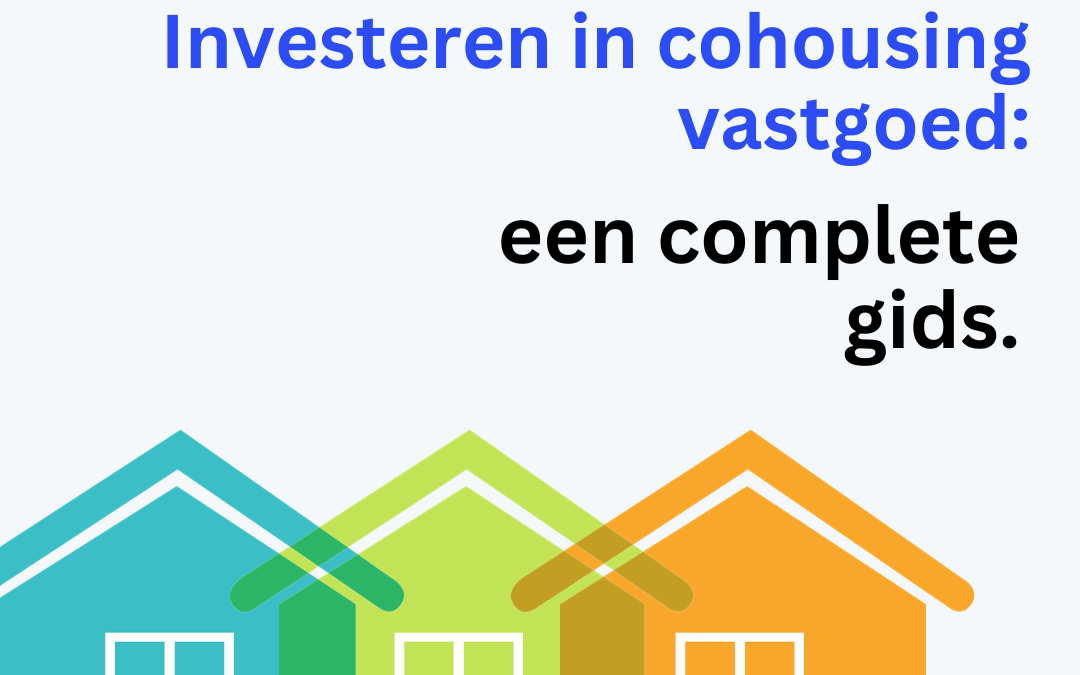Investing in cohousing in Belgium can be an attractive option, but it is important to be aware of the tax implications. In this article, we take a closer look at the various aspects of taxation and tax issues that are important for cohousing investors. Immotokens, as a specialist in real estate investment, offers the necessary support and advice for investors entering this market through its online platform.
Introduction to Cohousing and Taxation
Cohousing combines private living with communal facilities and spaces. It is a growing trend in Belgium, but as with any real estate investment, there are tax considerations investors should keep in mind. The taxation surrounding cohousing can be complex, depending on the structure of the investment and the location of the property.
Purchase taxes and charges
Registration fees and VAT
When buying property in Belgium, registration duties and, in some cases, VAT must be taken into account. Cohousing projects can be considered new construction, which implies that VAT has to be paid, rather than registration duties. The current VAT rate on new construction in Belgium is 21%.
Concrete Example:
Suppose you buy a share in a cohousing project in Flanders for €300,000. If this is considered new construction, you would have to pay 21% VAT, which amounts to €63,000 in VAT.
Annual Taxes
Property tax
In Belgium, property tax is an annual tax levied on real estate. This tax is based on the cadastral income (KI) of the property and varies depending on location and municipality.
Concrete Example:
The KI of your cohousing property is set at €1,200. In the municipality where your property is located, the property tax is set at 2.5 times the KI. This would mean that you would have to pay €3,000 in property tax annually.
ncome tax on rentals
Taxable income
The income you generate from renting out your cohousing property is subject to taxes. However, in Belgium, this taxable income is not calculated based on the actual rental income, but on the indexed cadastral income (KI), increased by 40%.
Concrete Example:
Suppose the KI of your cohousing property is €1,200. With an indexation coefficient of, say, 1.7 and the increase in 40%, the taxable income is calculated to be (€1,200 x 1.7) x 1.4 = €2,856. This amount is added to your other income and taxed at the progressive personal income tax rates.
Capital gains tax on sale
Capital gains tax
If you decide to sell your part of the cohousing project, you may be subject to capital gains tax. This tax applies if the sale takes place within a certain period after purchase (usually 5 years) and if the sale price is significantly higher than the purchase price.
Concrete Example:
If you sell your cohousing property within five years of purchase with a gain of €50,000, this capital gain could be taxed at a rate of 16.5% (plus municipal surcharges), amounting to a tax of €8,250.
Tax benefits and incentives
Tax relief for Energy Saving Measures
Belgium offers tax breaks for investments in energy-saving measures. Cohousing projects that invest in solar panels or better insulation, for example, can benefit.
Concrete Example:
If your cohousing project invests €20,000 in solar panels, you could benefit from a tax rebate of 30%, equivalent to €6,000 less in taxes payable.
Conclusion and Role of Immotokens
The taxation surrounding cohousing investments in Belgium is complex and requires expertise for an optimal approach. Immotokens, as a real estate investment specialist, offers the necessary tools and advice to guide you through this tax landscape via its online platform. With Immotokens, you can ensure that your investment in cohousing is not only socially and environmentally sustainable, but also fiscally beneficial.
So investing in cohousing brings both challenges and opportunities in terms of taxation. Proper planning and knowledge of the tax rules are essential to get the most out of your investment. Immotokens is ready to guide and support investors every step of the way so that they can invest with confidence in the Belgian cohousing market.



